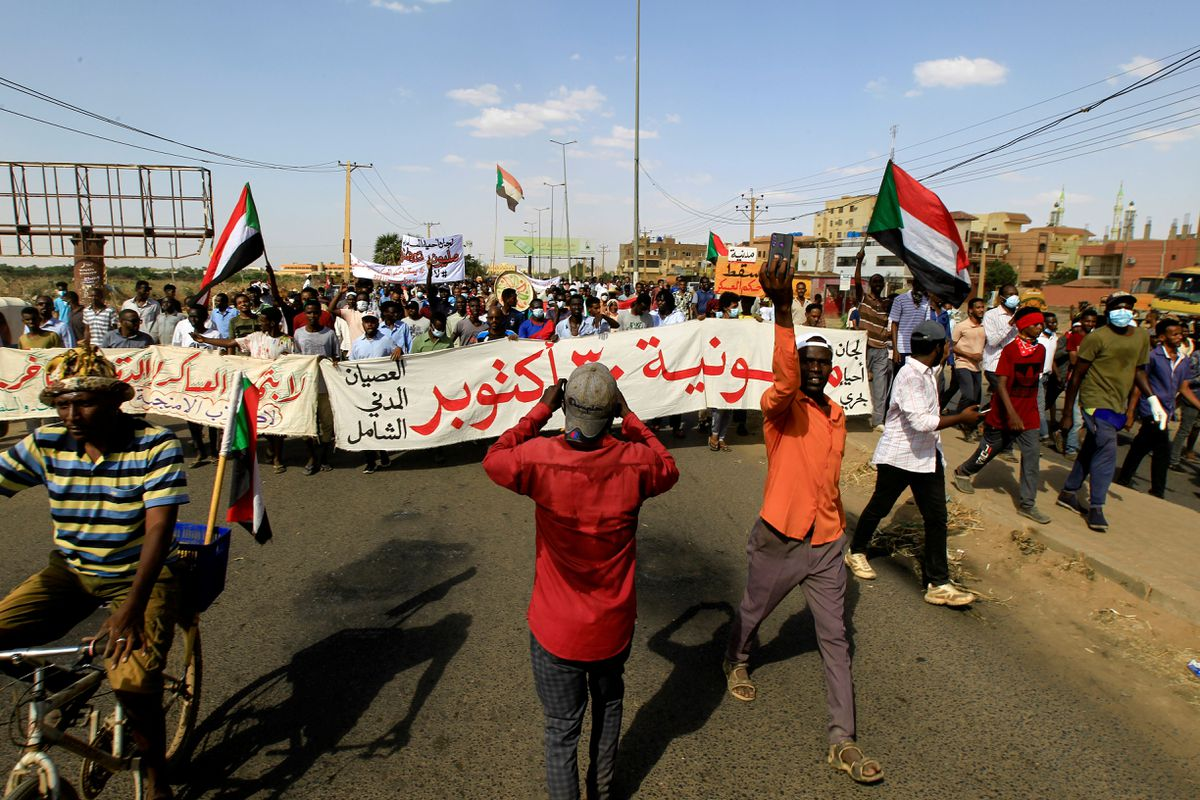
Sudanese pro-democracy groups launched two days of civil disobedience and strikes on Sunday to protest last month’s military coup. Participation appeared to be limited because of continuing interruptions to internet and phone connections.
Local resistance committees and the Sudanese Professionals Association (SPA), which led demonstrations in the uprising that toppled then-president Omar al-Bashir in April 2019, are organizing the protests to try to reverse the military takeover.
People were out on Sunday on the streets in the center of the capital, Khartoum, though there was less traffic than usual, residents said.
Members of a teachers’ union said that security forces used tear gas to break up their sit-in at the education ministry building for Khartoum State staged to oppose any handover to military appointees. Some 87 people were arrested, the union said.
In the Burri neighborhood of Khartoum and across the river in the Ombada area of Omdurman, police also used tear gas to break up protests, eyewitnesses said.
There were protests also in the cities of Medani, Nyala, and Atbara, where hundreds protested the reappointment of Bashir loyalists in local government, eyewitnesses said.
Internet disrupted
Some hospitals and medical staff in Khartoum were working normally while others were on strike.
“A number of people did not know about the call for civil disobedience because of the internet cut,” said one resident in central Khartoum who asked not to be named.
Internet services have been badly disrupted since the October 25 coup, and phone coverage remains patchy. Though daily life came to a near standstill, shops, roads, and some banks have reopened since the military takeover.
The coup halted a power-sharing arrangement between the military and civilians that had been agreed to after Bashir’s overthrow and was meant to lead to democratic elections by late 2023.
Top civilians including several ministers were detained, and Prime Minister Abdalla Hamdok was placed under house arrest.
Since the coup, mediation efforts involving the United Nations have sought the release of detainees and a return to power-sharing, but sources from the ousted government say those efforts have stalled.
On Sunday the commander in chief of the military, Abdel-Fattah Burhan, met an Arab League delegation, which stressed the importance of dialogue and the democratic transition, his office said in a statement.
Burhan told the delegation the military was committed to achieving “the Sudanese people’s ambitions,” the statement said.
Activists demanding that the military exit politics have announced a schedule of protests leading up to mass rallies on November 13 under the slogan “No negotiation, no partnership, no compromise.”
Hundreds of thousands took to the streets against military rule in two demonstrations before and after the October 25 coup.
Western powers have paused economic assistance to Sudan and say that relief on tens of billions of dollars of foreign debt is at risk unless there is a return to democratic transition.



